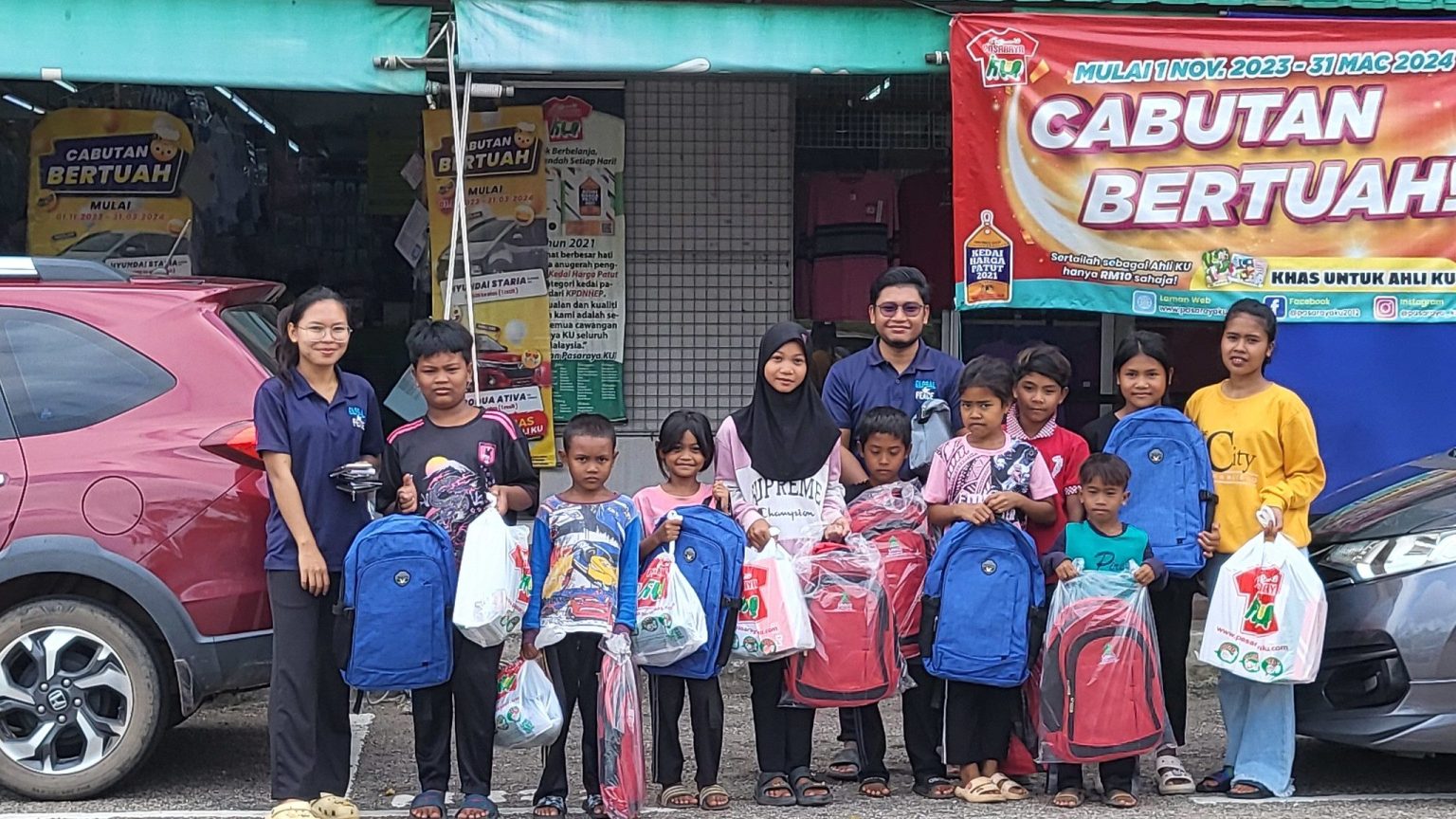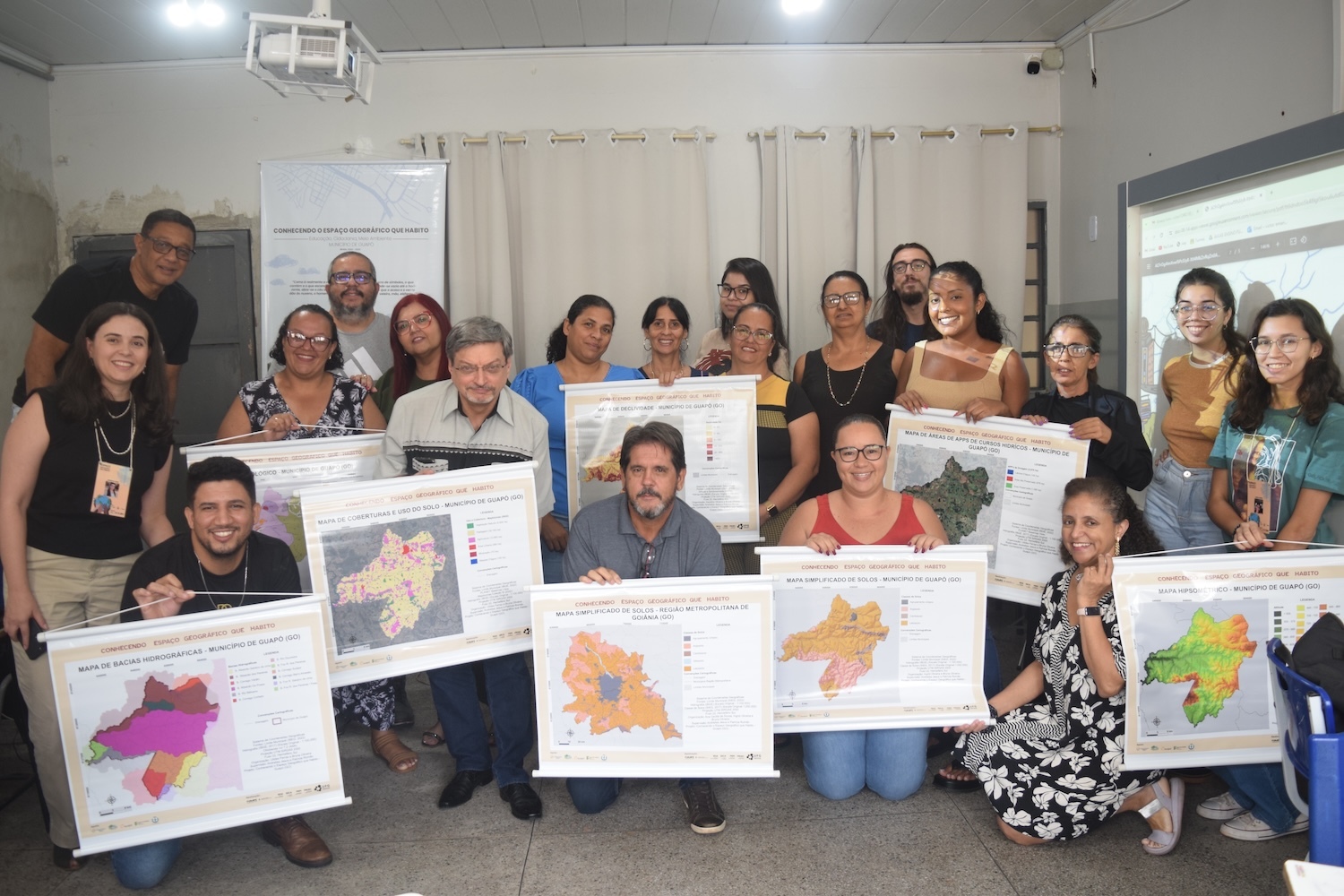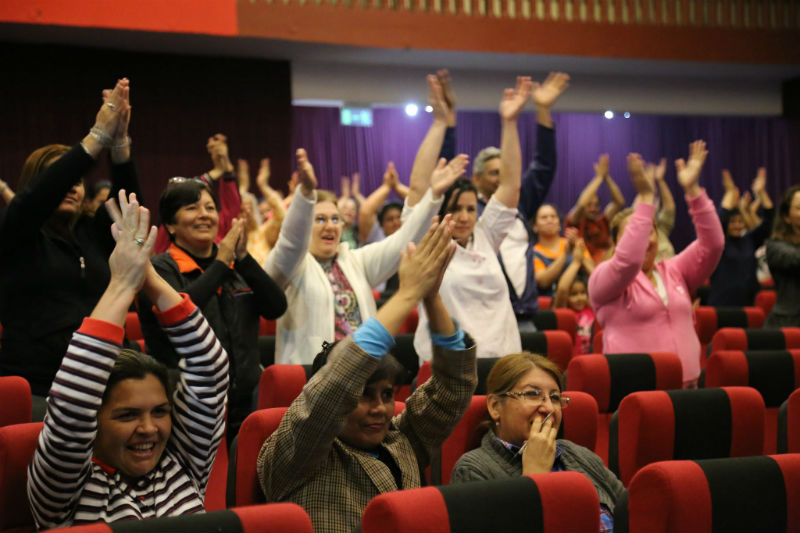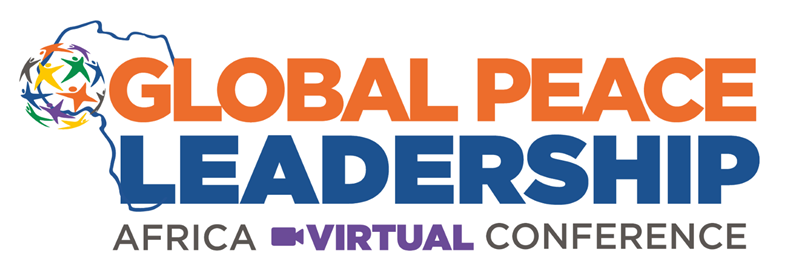
Global convening of teachers and administrators find lessons from the pandemic may be relevant to post-pandemic education
Educators, IT leaders, and media professionals from East Africa and around the world explored new learning models and practices, both in response to the global pandemic and to address shortcomings in technology and educational capacity that leave many youths behind, at the 2020 East Africa Global Peace Leadership Conference on July 30-31.
The conference, first scheduled for Nairobi, was held virtually across multiple time zones. The live streaming conference enabled far broader participation and underscored the urgent relevance of innovative instructional approaches not only to adapt to the pandemic but also to address rapidly changing skills and competencies required in the twenty-first-century workplace. More than 1600 professionals joined the virtual conference.
The four-session Education Track of the conference addressed key themes, including Transforming Education During and Post Pandemic; Character, Creativity and the Skills Essential for Future-Ready Education; Innovative Strategies for Education Implementation; and Education as a Whole of Society Approach through Collaborative Partnerships.
More than 25 speakers, primarily from East Africa, shared their experiences and offered important insights and innovations that are relevant to educators globally who are confronting many of the same challenges and disruptions resulting from the pandemic.

Panelists address the impact of the pandemic on education.
Addressing the conference from Paris, Andreas Schleicher, Director for the Directorate of Education and Skills for the Organisation for Economic Cooperation and Development, said the educational sector is a critical determinant of a country’s economic future, with long-term impacts on the student if delayed from returning to school.
“Some 1.5 billion students and parents discovered over the last few months that learning is not a place but an activity,” he said. “Remote learning has become a lifeline, yet it doesn’t replace the important social functions of schools, which for many is a very important, safe, and supportive environment. For some, this experience has been liberating and exciting; others, though, have been badly left behind.”
Factors for Success
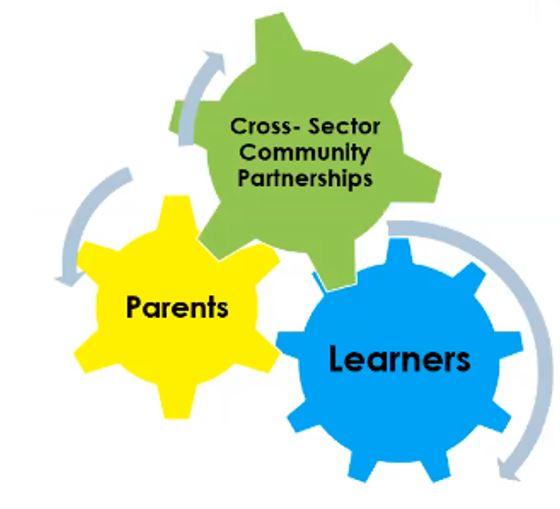
Panelists stressed the growing need for parents and community involvement in meeting educational needs.
Several speakers stressed the role of parents, more urgent than ever with schools shuttered and online learning reverting to the home. Soft skills like communication, collaboration, critical thinking, and problem solving—and values such as kindness, compassion, and respect—are learned in the home and are the foundation upon which skills can be developed and applied for human progress.
The digital divide has also been brought into greater focus because of the pandemic. Speakers from Kenya and Uganda noted that rural areas were significantly underserved because of inadequate infrastructure and absence of connectivity, challenges that confronted much of Africa before the pandemic struck.
Discussing the impact of the pandemic on the refugee communities in East Africa, Mr. Daud Hirmoge, Education Specialist at the Norwegian Refugee Council suggested that the global pandemic presents “a window of opportunity for new innovations” which can be used in the development and humanitarian context. In a post-pandemic world, he said, “I see a spike in innovations, platforms that will reduce dependence on enclosed classrooms. Now this pandemic has cut across all locations. Opportunities are universal and affect how education is delivered, especially in conflict zones or areas of instability.”
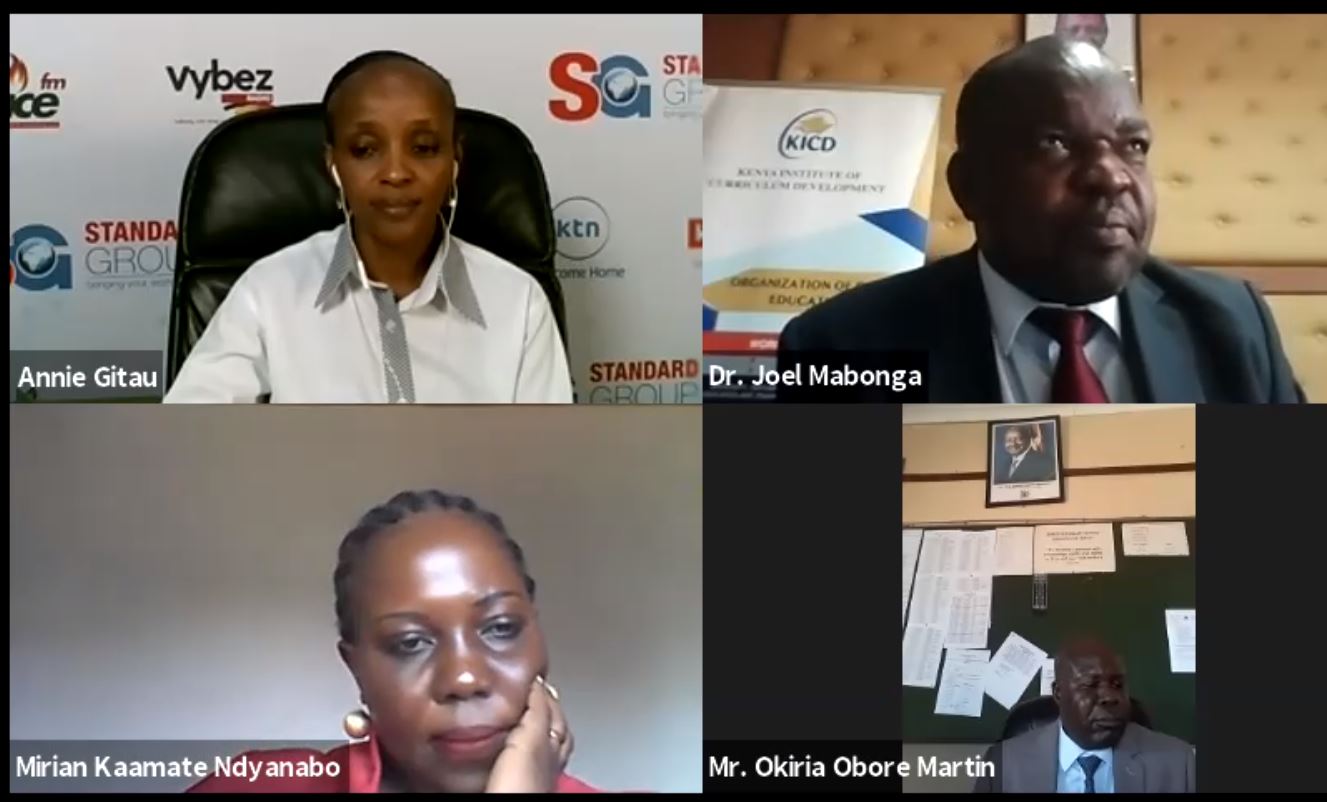
Panelists at the session Education as a Whole Society Approach
Other speakers urged greater involvement of higher education as an important resource to meet the needs of under-served youth. Institutions of higher education have the physical and cyber infrastructure and educational expertise that could be deployed, and in the future, integrated into a holistic approach to education.
The Global Peace Leadership Conference was organized by the Global Peace Foundation, the National Cohesion and Integration Commission/Government of Kenya, and the Standard Media Group PLC. The organizers would like the thank the Ministries of Education of the governments of Kenya and Uganda and distinguished panelists who shared important insights and direct experience with meeting the educational needs of youth during the global pandemic.
Special thanks to:
Panelists:
- Mr. Andreas Schleicher, Director for the Directorate of Education and Skills, Organisation of Economic Cooperation Development
- Ms. Grace Baguma Director of National Curriculum Development Centre Ministry of Education and Sports, Uganda
- Mr. Ashok Pandey, Director of the Ahlcon Group of Schools, Delhi, India
- Hon. Zack Kinuthia: Chief Administrative Secretary, Ministry of Education, Kenya
- Mrs. Sefunmi Durojaye, Sub-Sahara Africa Country Programs Manager Oracle Academy
- Mr. Indimuli Kahi, Chairman Kenya Secondary School Heads Association
- Ms. Mutheu Kasanga, Chairperson, Kenya Private Schools Association
- Dr. Turyagyenda Kedrace, Director of National Education Standards, Ministry of Education and Sports, Uganda
- Rev. Kakooza Paul, Director, the Directorate of Education of the Anglican Church of Uganda, Directorate of the Interreligious Council-East Africa Secretariat-Education Division
- Mr. Micheal Magaji, Vice President General, Unity Schools Old Students Association, Nigeria
- Mr. Nicholas Siwatom, Chief Talent Officer, The Standard Group PLC, Kenya
- Hon. Marie-Josee Ifoku, Commercial Director for Tractafric and ATC companies, former Presidential candidate in DRC 2018 general elections
- Ms. Jacinta Akatsa, Executive Director, Centre for Mathematics, Science and Technology Education in Africa (CEMASTEA)
- Mr. Daud Hirmoge, Education Specialist, Norwegian Refugee Council
- Prof. Waswa Balunywa, Vice-Chancellor, Makerere University Business School
- Mr. Varum Bhassin, CEO, Agri-Exim (Asia, Africa & U.S.A)
- Ms. Talitha Batts, M.A.ED: Business Counselor, SBTDC at NC State and International Business Development Program Small Business and Technology Development Center
- Istar Ahmed, Founder/Director, Change Solutions Somalia
- Dr. Joel Mabonga, Ag. Chief Executive Officer, Kenya Institute of Curriculum Development
- Mr. Gideon Badagawa, Executive Director, Private Sector Foundation, Uganda
- Mr. Okiria Obore Martin, National Chairperson, Association of Secondary School Headteachers of Uganda
- Ms. Annie Gitau, Newspapers in Education Manager, Standard Media Group PLC, Kenya
- Mirian Kaamate Ndyanabo, Head Teacher, British School of Kampala, Uganda
- Salome Agnes Awuor, Founder Hekima Kaka Society, Director JOOUST, Kenya
Moderators:
- Rev. Fr. Canice Chinyeaka Enyiaka, Ph.D. Program Development Specialist, Interfaith/Community Outreach, Global Peace Foundation
- Amb. Milton Kambula, Country Director, Global Peace Foundation Uganda
- Daniel Juma Omondi, Executive Director, Global Peace Foundation Kenya
- Dr. Tony Devine, Vice President, Education, Global Peace Foundation
The Global Peace Foundation has hosted several recent virtual forums in Kenya and Uganda and has scheduled additional forums throughout 2020 to support educators during the global pandemic crisis.

